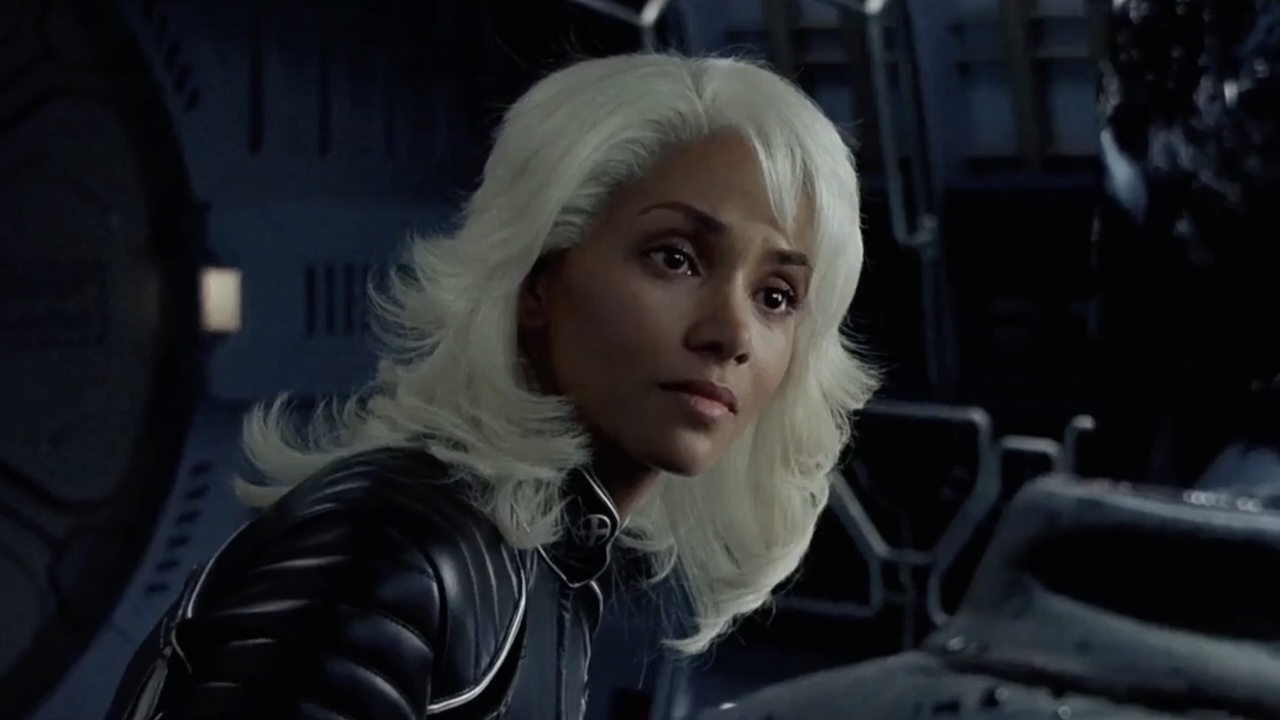Proving it has more lives than a cat, the show that won’t stay dead comes back one more time. And like any decent undead thing, Futurama says, “Screw you, I’m going to keep doing what I’m best at.” Previously on Futurama...the show had been cancelled by Fox (wow, there’s a shocker) but picked up for a series of direct-to-DVD movies, which were cancelled. When last seen, Fry (voiced by Billy West, who does an amazing number of the show’s voices), Bender (v. John Di Maggio), Leela (v. Katey Sagal), and the rest of the crew were being chased by Zapp Brannigan (also West) into a wormhole that could lead...anywhere.
Futurama starts its fifth season right where it left off. The wormhole spits out the Planet Express ship over Earth, they’ve got time for a quick joke at the network’s expense, and then they crash just outside their headquarters, killing the entire crew except for Professor Farnsworth (hey, guess what -- it’s Billy West again). No, seriously. All dead. For a little while, anyway. Then in episode two the writers destroy the Earth, leaving Leela naked and trapped on a jungle planet with Zapp. And after that, well...things just go back to normal for the Planet Express crew.
Bender and Amy (v. Lauren Tom) start dating and end up crusading for equal rights when their robosexual relationship is labeled immoral. We find out that cats are actually alien invaders. Recurring alien invader Lrrr (Maurice LeMarche) is thrown out of his home when he gets bored of conquering worlds. A mind-switching device causes chaos as all the crew members trade bodies two or three times -- which leads to an emotionally scarring scene involving Farnsworth and Zoidberg (yet again, Billy West). Bender becomes painfully aware of his mortality when he discovers a manufacturing defect prevents him from downloading his consciousness into a replacement body. And a three-part holiday extravaganza teaches viewers the true meaning of X-Mas (mutant trees), Robanukah (fembots need oil to wrestle in), and Kwanzaa (getting wax from alien space bees to make candles).
A few episodes have to get singled out, though, for sheer brilliance. In “The Duh-Vinci Code” a long-lost blueprint and some hints in The Last Supper send the crew off to Rome to discover the secret of Leonardo da Vinci’s last invention, not to mention the great secret of the Renaissance man himself. It’s a beautiful send-up of The Da Vinci Code, seasoned with a hint of Back to the Future and a doomsday device that makes ice cream as a by-product. “The Late Philip J. Fry” explores time travel with a twist when the Professor designs a time machine that can only move forward, forcing Fry, the Professor, and Bender try to find a future civilization that’s developed a backwards-moving time machine. It’s a great exploration of a sci-fi standard, grounded in Fry’s desperate hope he can somehow make it back to their own century in time for Leela’s birthday dinner. Finally, “A Clockwork Origin” deals with the Professor’s frustration with people who doggedly refuse to accept the theory of evolution despite all the evidence. And then with his own refusal to accept the idea that machines can evolve, which gives us a fantastic new word for prehistoric mechanical life -- trilobots.
Futurama does ride a bit on assuming you’re already a fan, but it’s not the most difficult show to hop on if this is where you start from. LOST this is not. But being marked for death again and again has let the show retain the sharp edge that has dulled on The Simpsons over the years. It takes sly (and not so sly) jabs at gay marriage, censorship, creationism, civil rights, furries, Facebook, and the Cult of Mac (or would that be the iCult these days?). Better yet, it does this with a pile of classic sci-fi tropes like robots, mutants, and aliens. There’s even a wonderful spoof of Star Trek’s V’Ger mixed in there. It’s smart, fast humor that doesn’t care if you don’t get it or can’t keep up. There may only be half a season here, but there’s a ton of special features in this very environmentally friendly box set (Al Gore’s head thanks you, 20th Century Fox). Every single episode has a commentary track featuring the producers, director, writers, and cast members. There’s a bunch of the stuff you’d expect as they reminisce about different gags and challenges, and getting outbid by Nicholas Cage at an auction, but there’s also a lot of in-depth, behind-the-scenes stuff. They talk about voice-acting, and most of the cast sings the praises of voice legend Frank Welker (look him up) who voices Leela's pet, Nibbler. There’s a discussion of how challenging it is to come up with chains of reasoning that are more absurd than the ones in The Da Vinci Code. Executive producer David X. Cohen admits that “A Clockwork Origin” grew entirely out of his anger with a series of anti-evolution protests led by former-child-actor-turned-adult-zealot Kirk Cameron. Perhaps the most interesting thing is how much thought goes into the science of Futurama. You’d never guess. The writer/producers talk about isotope half-lives, stem cells, and aerodynamics, and freely point out some of the logic problems in their own episodes.
If you want more than that, there’s a bunch of deleted scenes (including a damned funny alternate opening for the fifth season), a music video that expands on Bender’s party song from “The Mutants are Revolting,” and an actual table read of the “Prisoner of Benda” script. You can even watch a reel of all the “Previously on Futurama” clips from the movies.
If you’ve ever liked Futurama, these 13 episodes are just going to reinforce why. If you’re reading this and you’ve somehow never seen the show, this is your big chance.
Your Daily Blend of Entertainment News

